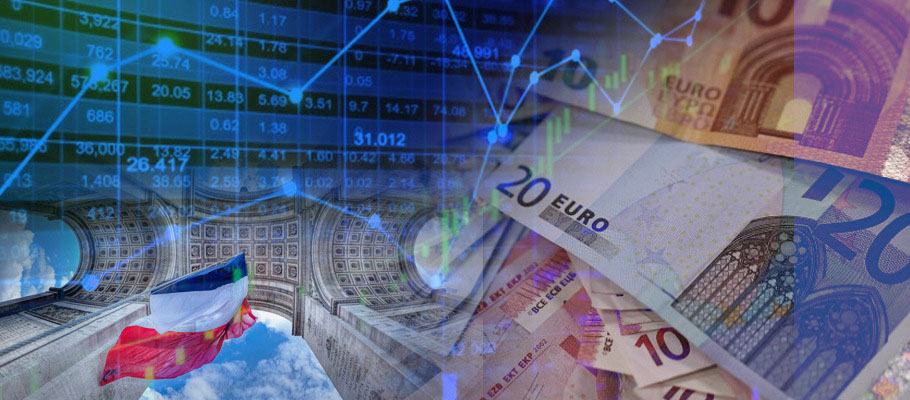
Published: June 25th, 2025
The French government is trying to convince its fellow EU members to take additional measures designed to raise the Euro's appeal as a global reserve currency, a new tactic in Paris' ongoing effort to incentivize more joint borrowing by the bloc.
The most recent lobbying moves are happening while the US Dollar's status as the de facto global currency is being questioned, due in part to perceptions that the Trump White House is taking an erratic and insular approach to policy decisions.
A draft communique shared by France ahead of the upcoming EU leaders' summit aims to convince EU institutions to consider actions to strengthen the international role of the Euro.
According to a Reuters report, Paris believes currency traders are searching for new safe havens to mitigate exposure to US Treasury debt. The EU could take advantage of the opportunity by issuing more joint debt to meet demand.
A note to investors from the FX strategy unit at Jefferies Bank says French President Emmanuel Macron sees a window of opportunity for the Euro.
‘Washinton is basically leaving the door open to competition,’ say Jeffries analysts, and there may be an opportunity for EUR to win some of the share of USD's reserve status.
Reserve currency status can offer central bankers significant economic, financial, and geopolitical advantages. In America's case it enables the government to borrow at lower rates since investors will take lower yields on government debt.
The Greenback owes much of its privileged reserve status to the scale of the US Treasury bond market.
In January 2024, Central Bank policymakers in Frankfurt were heartened by new figures showing that Eurozone unemployment has dropped to an all-time low. Along with happy tidings for jobseekers, the figure also supported the European Central Bank's position on delaying interest rate cuts.
Eurostat said that unemployment in the Eurozone had fallen to 6.4 per cent in December 2023 from 6.5 per cent the previous month. The figure was driven by a drop in the number of unemployed of ca. 99,000 and outpaced the market expectation that unemployment would remain unchanged.
The robust labour market strengthened the consensus that Eurozone wages would hold firm at above-trend levels over the coming months, cooling hopes for a near-term fall in inflation to the ECB's two per cent target.
The fall in unemployment also added credibility to recent ECB's statements that an imminent rate cut wasn't being planned.
In an analyst note published, ING Bank said that as expectations around employment prospects improved, ‘a sudden rise in unemployment seem(ed) very unlikely in the first half of 2024.’
The resilient Eurozone labour market stood in contrast to the sense of malaise that dominated economic commentary across the bloc in the final quarters of 2023, with surveys pointing to more sluggish growth at the end of the year.
A relatively tight labour market drove more consumer and business spending, but ING economists said it also raised important questions for the European Central Bank.
One was whether or not growth in the eurozone economy had been held back by reductions in labour supply. Another was to re-assess the impact of low unemployment on inflation.
The Euro began July 2023 softer across the board following a Eurozone inflation print for June that fell below consensus expectations and indicated price pressures were easing across the trading bloc.
Evidence that inflation was on its way back down to the ECB's two per cent target sent EUR earthward, falling back against all its G10 currency peers as traders continued to trim expectations for the European Central Bank's (ECB) peak policy rate.
Headline HICP figures released by Eurostat showed that inflation was 5.5 per cent higher in June 2023, but down from 6.2 per cent in May and beneath the 5.6 per cent that economists and institutional analysts were anticipating.
Eurostat did capture a small uptick in the month-on-month figure, which rose to 0.3 per cent in June from 0 per cent in May and north of the consensus expectation of 0 per cent. The core inflation measure, however, is the one that has the greatest influence on central bank policymakers.
It takes out variables like food and energy prices and came in at 0.3 per cent month-on-month. That was less than the consensus expectation of 0.7 per cent, though slightly above the previous month's 0.2 per cent.
The greatest upward pressure came from Germany, which posted a 0.3% month-on-month rise in June headline inflation over -0.1 per cent recorded in May. However, German core inflation still fell below market expectation, hitting 0.3 per cent in June, while consensus was looking for 0.7 per cent.
In France, core inflation rose 4.5 per cent for the 2023 year-to-date, undercutting expectations for 4.6 per cent and under May's published 5.1 per cent figure.
In early May 2023 the Euro found itself in a similar situation, falling back against all its G10 peers except for the mighty USD. EUR only rose in relation to the Brazilian Real, Turkish Lira and Chinese Renminbi on the broader G20 table, however some analysts said it could remain a laggard for the near term.
EUR started experiencing losses when European Central Bank (ECB) President Christine Lagarde said on 3rd May that interest rates would likely be raised again soon, only holding steady until Frankfurt believed that monetary conditions had become restrictive enough to send inflation back down to the central bank's two per cent target.
The Euro experienced further declines when German state statistics agency Destatis announced that the country's manufacturing orders fell more than 10 per cent in March, the biggest one-month decline since the onset of the pandemic. The print followed a Eurostat print which indicated that European retail sales dropped a full percentage point in the same month.